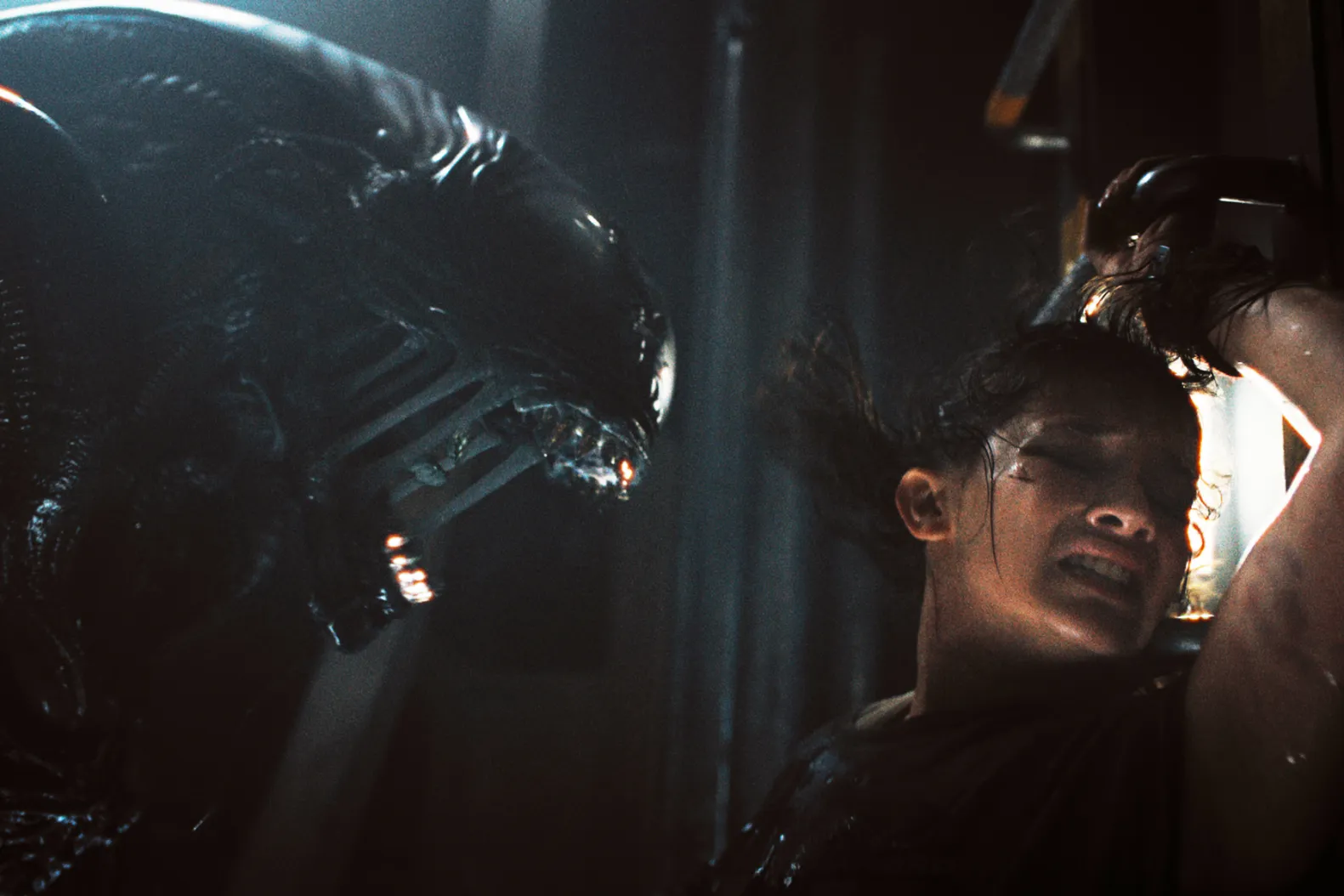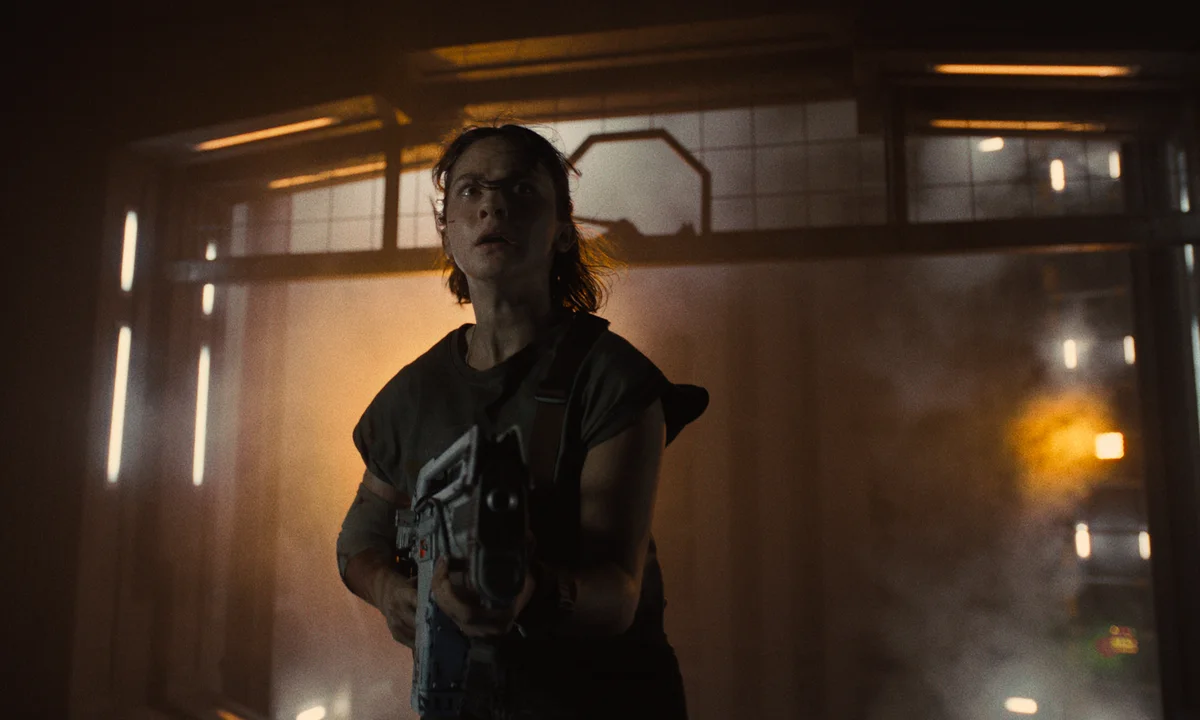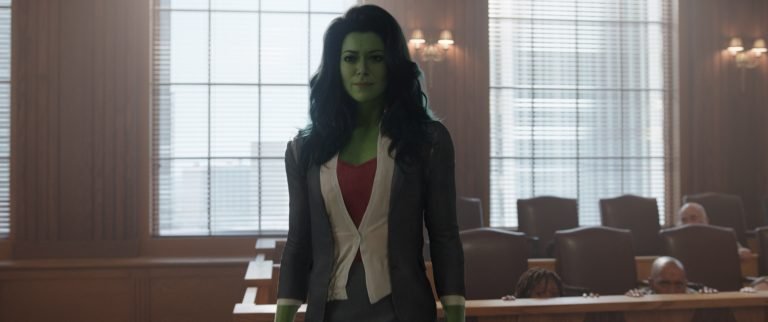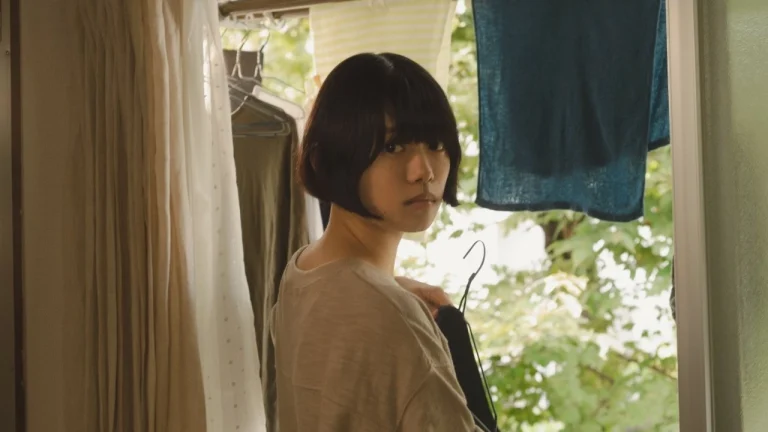Despite the general aura surrounding the Alien series as being Ridley Scott’s protected baby, we, as viewers, would do well to remember that a different filmmaker helmed each of the four original entries in this franchise. Of course, Scott’s return to the fray beginning with “Prometheus” marked a distinct shift in narrative direction—one that more firmly cemented this universe as the Brit’s sandbox to share with others—but once more, he’s found the room in his heart to pass off directing duties to a fresh face.
That fresh face is incoming horror aficionado Fede Álvarez, and with “Alien: Romulus,” the Uruguayan director has brought his own bloody sensibilities into the fold. That isn’t, however, to say that Álvarez has strayed too far from his predecessor—on the contrary, “Romulus” brings with it one crucial tenet not only of Ridley Scott’s entire oeuvre but of this particular series of films as a whole: glaring inconsistency.
Rather than (directly) continuing on the path set forth with the philosophically ambitious but massively foolish “Alien: Covenant,” Romulus finds itself placed squarely between the events of the first two films and follows an entirely new crew. Most of these faces, naturally, are generic xenomorph fodder. Still, the ones worth remembering are Rain (Cailee Spaeny, having a banner year for promising projects that turn to dust in her fingers) and her android companion Andy (David Jonsson). To get the ball rolling with some inconsequential preamble leading into the horrors coated in blood and acid, these two have joined a small contingent of colony workers who wish to commandeer equipment from an abandoned space station in order to facilitate an off-world escape from their menial lives mining for the ever-popular Weyland-Yutani Corporation.

Naturally, this is all a formality offered by Álvarez and his co-writer Rodo Sayagues for the sake of narrative progression, as the real meat of “Romulus” comes with the iconic face-hugging extraterrestrial monstrosities. But with that in mind, the filmmaker does lend a surprising amount of time to the motivations of these young space colonizers (or at least, the two we’re meant to care about), cultivating a genuine sense of dread and longing for a life outside the only soul-sucking corporate labor they’ve always known.
While the quality of the dialogue employed to communicate this anguish is… unpolished, to say the least, “Romulus” does manage to create a sense of sincerity thanks primarily to Spaeny and Jonsson’s committed turn and the overarching sentiment bludgeoned by those abysmal lines. To keep things in the Alien family, if we’re willing to give James Cameron a break for some of the absolute dreck he’s written to come out of his characters’ mouths, there’s no reason not to extend Álvarez and Sayagues the same courtesy if the heart is still there.
That sincerity, of course, flies out the window as soon as “Romulus” gets to the real heart of what it’s trying to be, and all the shameless “reverence” (read: rehashing) of Ridley Scott’s original film comes to the fore. Right from the font used for the opening credits, Álvarez is showing his hand with just how reverential he’s going to be towards his mentor. Still, little can prepare for just how blatantly and blandly uninspired his vision actually is.
With its constant nudging reminders to the audience about the existence of the preceding Alien—including one crucial and annoyingly recurring element that will no doubt inspire think-pieces for months—”Romulus” writes itself into a corner because those of us with Scott’s film on the brain (a state of mind which this film actively nourishes at every turn) are constantly left to remember how much of this we’ve seen before.

The issue isn’t even necessarily the fact that “Alien: Romulus” can’t help but dance so aggressively in the shadow of “Alien” and call our attention to its lack of original moves, but rather the fact that Álvarez simply doesn’t do a very good job of imitating his idol. The xenomorphs themselves, barely a presence here, aren’t afforded the same mysterious air as they were in the first film, mainly because we all know what these things look like by now—this film can’t stop reminding us of the first time we saw these things, in fact. So the fleeting glimpses and half-assed kills that compose the alien screen-time in the film feel more like obligatory checkpoints than anything Álvarez actually felt compelled to incorporate in his “Don’t Breathe in Space”—worth noting that “Don’t Breathe,” for all intents and purposes, was essentially “Alien in a house.”
While “Alien: Resurrection” and “Alien: Covenant” were arguably missteps in this franchise, at least their failings came from an interest in exploring unconventional avenues; even David Fincher’s “Alien 3,” maligned by everyone, including Fincher himself, provided something in terms of a uniquely nihilistic perspective to be introduced into the increasingly stale mold. Meanwhile, “Alien: Romulus” tries to reconfigure its goals to establish that the Alien framework can once more be repeated competently.
In an oblique sense, you can argue that Fede Álvarez accomplished that mission, but at this point, would such a mission not be better off abandoned altogether? There’s an endless vacuum of space to explore, and one semi-inspired nod to “Prometheus” in the final act will hardly convince us that “Romulus” is charting unmined territory. Once we’re sent back into that cold vacuum again, we’re left to wonder how much of Álvarez’s efforts were the result of venerated enthusiasm rather than trepidatious obligation.



![The Other Side Of Everything [2017]: ‘TIFF’ Review](https://79468c92.delivery.rocketcdn.me/wp-content/uploads/2017/08/othersideofeverything_01-768x384.jpg)
![Legendary in Action! [2022]: ‘NYAFF’ Review – A Patchy Homage to Hong Kong Wuxia Films](https://79468c92.delivery.rocketcdn.me/wp-content/uploads/2022/07/Legendary-in-Action-768x512.jpg)
![Lookback on Lumet: The Offence [1973]](https://79468c92.delivery.rocketcdn.me/wp-content/uploads/2018/08/vlcsnap-error063-768x459.jpg)


